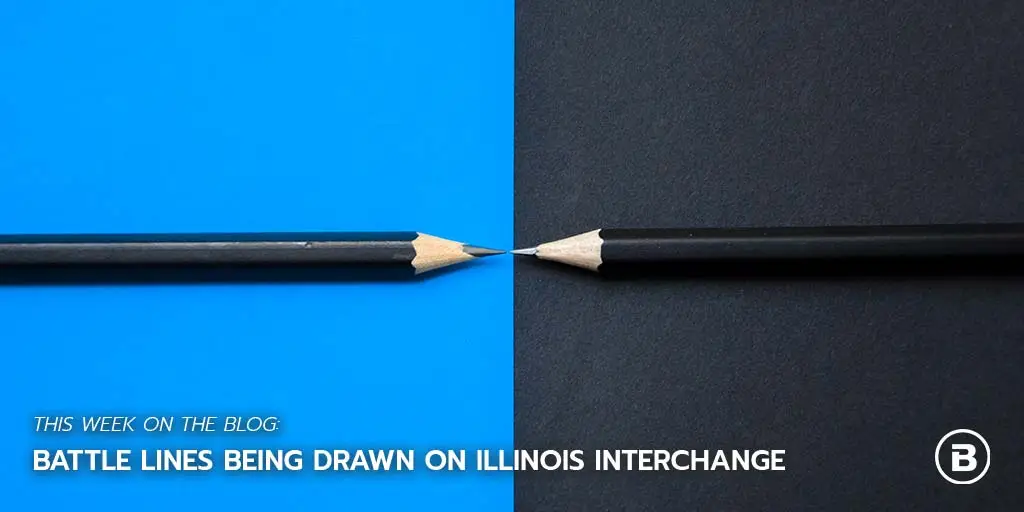Keep pace with the rapidly evolving fintech industry by subscribing to the BIGcast Network. Get weekly insights from industry leaders John Best and Glen Sarvady, delivered straight to your preferred podcast platform. Join our community and stay informed about the latest trends shaping the credit union industry. Subscribe today and ensure you’re always ahead of the curve.

Battle Lines Being Drawn on Illinois Interchange
When Illinois Governor J.B. Pritzker signed The Interchange Fee Prohibition Act into law in late June, it was already clear the legislation’s impact would radiate well beyond the state’s borders. The speed and intensity of the national reaction has nonetheless been surprising- reaching a peak (for now) with last week’s amicus brief by the OCC blasting the law as “unworkable.”
First a bit of background- The Interchange Fee Prohibition Act (“IFPA”) forbids the charging of interchange on the portion of a debit or credit card purchase related to state taxes and employee gratuities. For years retail trade groups have sought a state-level opportunity to enact such a provision. They finally found a willing partner in Illinois as a last-minute addition to a budget bill, selling it as a way to appease retailers angered by their loss of a different tax break. Our previous blog covers more of the IFPA’s specifics.
The law’s provisions are slated to take effect in July 2025. Credit union and banking groups continue to work with state lawmakers to address its many shortcomings. Nonetheless, according to Illinois Bankers Association President Randy Hultgren, “We cannot take the chance that this misguided gift to corporate megastores takes effect and damages our state’s economy.” In August, America’s Credit Unions and the Illinois Credit Union League joined forces with the American Bankers Association and IBA in suing the State of Illinois, claiming the IFPA violates multiple federal statutes and should be declared unconstitutional.
“The filing of this litigation ensures that the courts will carefully review the legality of this Illinois law, which has never been tried anywhere else in the world,” said ICUL President Tom Kane. (Listen to BIG’s interview with Kane and ICUL SVP of Advocacy Ashley Sharp here.)
From here it gets even more interesting. In early October the Office of the Comptroller of the Currency (OCC) filed an amicus court brief in support of the lawsuit challenging the IFPA. Given the industry’s frustration with expansive regulatory oversight, banks/credit unions and the OCC are rarely considered allies. Yet the OCC’s brief pulls few punches in amplifying the industry’s objections, calling the IFPA “an ill-conceived, highly unusual, and largely unworkable state law” that “constitutes both bad policy and an unlawful interference with federally granted powers.”
It’s shockingly blunt language from a typically conservative regulatory agency. Across 15 pages, the OCC details multiple reasons why the IFPA should not be allowed to take effect. One of these echoes a key objection raised in the initial complaint. The OCC points out that the agency “encourages, but does not mandate, national banks to utilize electronic payment transaction data as a vital component of their fraud detection and prevention systems.” On the other hand, “The IFPA’s Data Usage Prohibition is tantamount to a near-complete ban on national banks’ use of transaction data in ways that are expressly authorized by federal law.” In other words, the IFPA would make it more difficult to fight increasingly sophisticated fraud threats, much less reclaim ground lost to the bad guys in this arena.
Of course supporters of the IFPA are lining up on the opposite side as well. The National Association of Convenience Stores has taken a leading role in agitating for interchange legislation at the federal and state level for years. The National Retail Federation and Illinois Retail Merchants Association are also expected to file briefs. The latter group released results of a highly questionable survey claiming broad public support for the IFPA. These “findings” can be quickly debunked by simply reading the biased wording of the survey questions, and/or a straw poll that reveals the vast majority of Illinoisans aren’t even aware of the legislation.
Also, Illinois Senator Dick Durbin submitted a court brief in support of the law (perhaps you’ve heard of him). Durbin argues that the IFPA is “consistent with, and complementary to” his namesake amendment. Notably the OCC’s brief takes issue with Illinois law overstepping the National Bank Act rather than the Durbin Amendment.
Grab your popcorn- there’s certainly more action to come. While you’re at it, bookmark the IFPA as a case study for why it’s essential for CUs to stay attuned to legislative issues, including those outside its home markets, and to use their voices to ensure all perspectives are properly considered.
